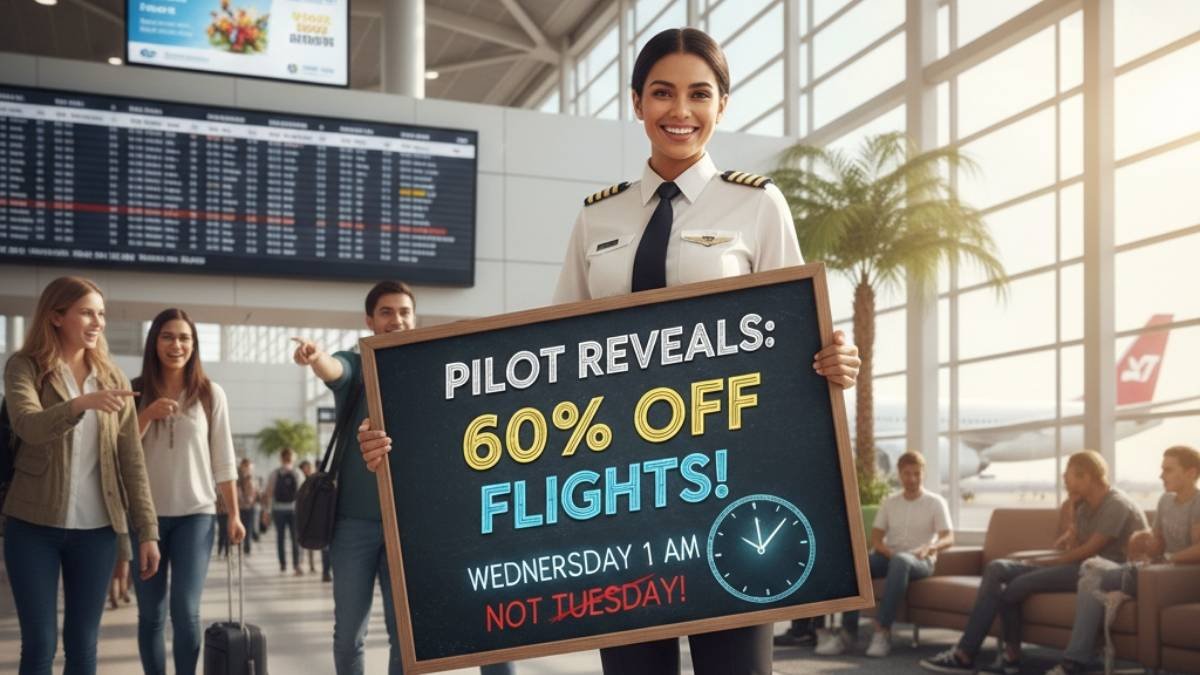
Let me guess. You’ve been waiting until Tuesday afternoon to book your flights because the internet told you that’s when prices magically drop, right?
Yeah, I need to tell you something. That advice is costing you hundreds of dollars.
I’ve spent years in aviation, and I’ve watched travelers throw money away following outdated myths while the actual booking secrets sit right there in plain sight. The Tuesday thing? It stopped working over a decade ago. But nobody bothered to update that blog post from 2012 that’s still ranking on page one of Google.
Here’s what actually happened: In early 2025, Expedia analyzed billions—yes, billions—of actual ticket purchases. They found that Sunday bookings save you 6% on domestic flights and 17% on international trips compared to booking on Fridays or Mondays.
But honestly? The day you book barely matters compared to three other factors that most people completely ignore.
I’m going to break down exactly how airline pricing actually works (spoiler: it’s way more interesting than you think), share the insider strategies pilots and flight attendants use for their own trips, and show you how to realistically save 25-40% on your next flight.
Ready? Let’s expose what the airlines don’t exactly advertise on their homepage.
Why That Tuesday Myth Is Actually Hurting Your Wallet
The Evolution of Airline Pricing: Why Tuesday Died
Okay, storytime. Back in the 1990s and early 2000s, the Tuesday thing was legit. Airlines would manually update their fares on Monday evenings. By Tuesday afternoon, competitors would respond with their own prices, and boom—mini price war.
People who knew this could snag real deals on Tuesday at 3 pm.
But here’s the thing: Airlines haven’t operated that way since probably before you owned a smartphone.
Scott Keyes, the guy who founded Going (formerly Scott’s Cheap Flights), puts it bluntly: “Airlines no longer operate this way.” Yet that zombie advice keeps shambling around the internet, getting clicked and shared and costing people money.
What Modern Airline Pricing Actually Looks Like
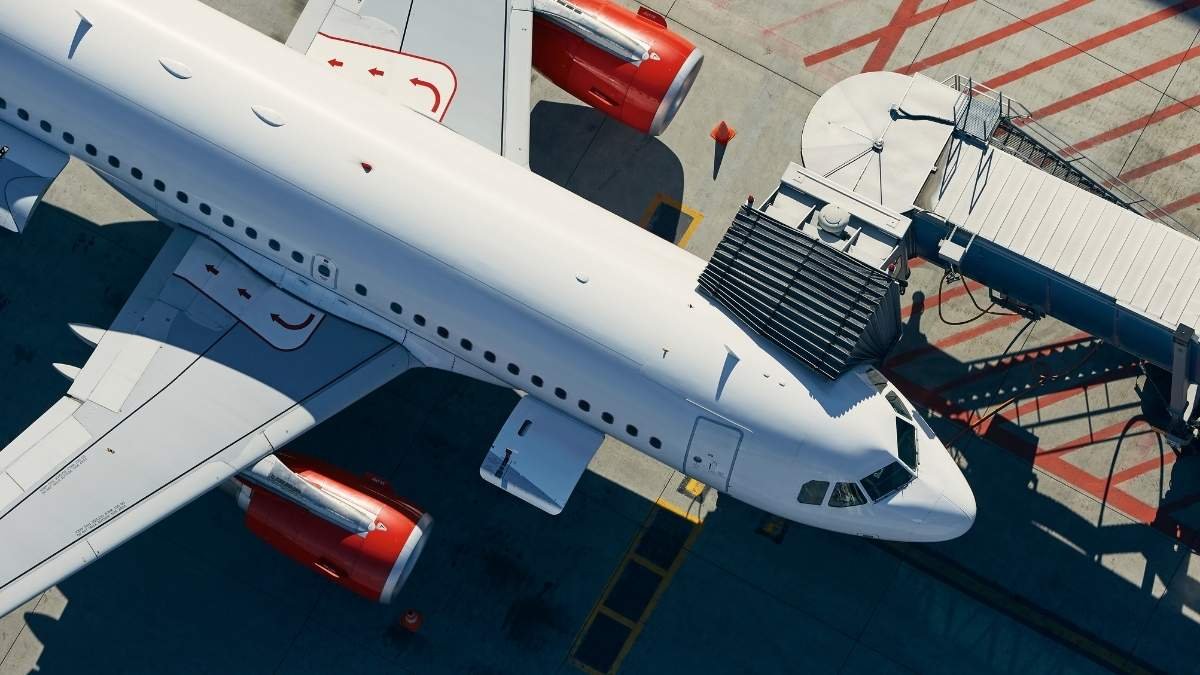
Instead of weekly manual updates, airlines now use sophisticated AI systems that adjust prices multiple times per day. Sometimes hourly on competitive routes.
Think about it like surge pricing for Uber, but way more complex. The algorithms are watching:
- How fast are seats selling on your specific flight
- What competitors are charging for similar routes
- Current search traffic (not just actual bookings)
- Weather forecasts and events at your destination
- Even social media trends that might indicate demand spikes
Delta’s new AI pricing system can autonomously change prices when it’s confident about demand. They’re running it on 3% of domestic fares now, with plans to hit 20% by the end of 2025.
This is what you’re up against. Not some guy manually updating spreadsheets on Monday night.
So What Does the Data Actually Say?
Google Flights analyzed four full years of their booking data. What is the difference between booking Tuesday-Thursday versus Saturday-Sunday?
A measly 1.9%.
That’s like $8 on a $400 ticket. Barely enough for airport coffee.
Meanwhile, Expedia’s 2025 report (which looked at billions of transactions from January to October 2024) found that Sunday consistently beats every other day. Three years running now.
If you book on Sunday instead of Friday, you’ll save:
- 6% on domestic flights (about $24 on a $400 ticket)
- 17% on international flights (could be $150+ on a $900 ticket)
Friday and Saturday are actually the worst days to book, running up to 13% more expensive than Sunday.
But you know what matters way more than the booking day? Let me show you.
The Booking Window Secret That Actually Saves You Money
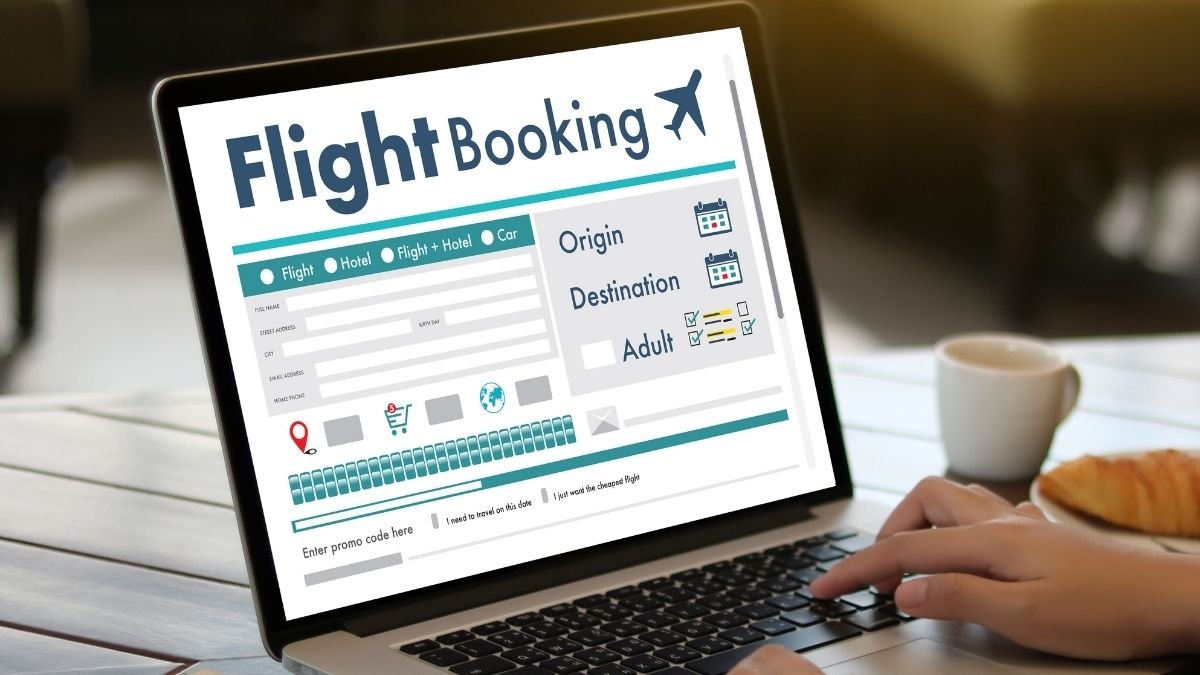
Here’s where things get really interesting. Forget what day of the week you click “purchase.” The question that determines whether you overpay or save hundreds is:
How many days before your flight are you booking?
And the answer changed dramatically in 2024.
The Sweet Spot Moved Closer to Departure (Yes, Really)
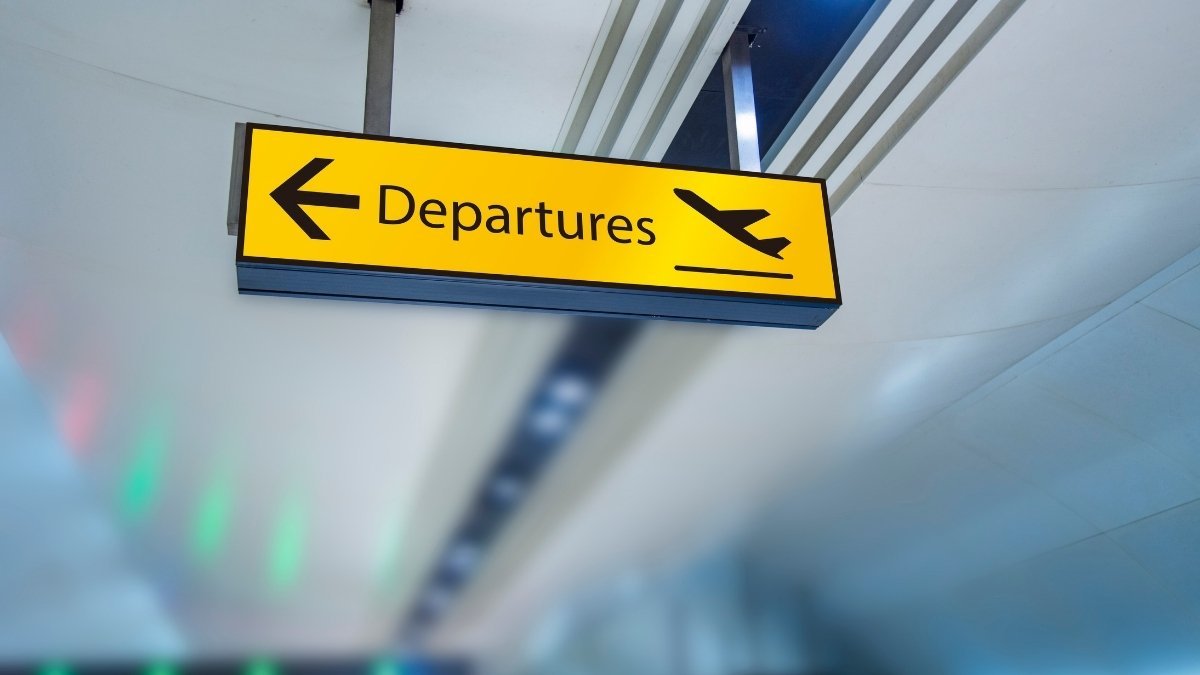
CheapAir analyzed nearly a billion—not million, billion—flight prices. They found something shocking:
The optimal domestic booking window moved from 70 days out in 2023 to just 42 days in 2024.
That’s almost a full month closer to departure.
Why? Airlines got way smarter about predicting demand after COVID scrambled all their old patterns. Their AI systems are now confident enough to keep lower prices available closer to departure because they know they’ll fill the plane.
Here’s what this means for your wallet:
For domestic US flights: Book between 28-60 days before departure. The absolute sweet spot is around 38-42 days out. This saves you 24-25% compared to last-minute bookings.
For international flights: You need more lead time—60 to 150 days ahead, depending on where you’re going. But here’s where it gets weird…
Europe bookings now work best at 320 days in advance. That’s almost a year. Last year, it was 45 days. The Caribbean dropped from 56 days to just 29 days. Asia went from 144 days to 71 days.
These massive swings show how much the airline industry is still recalibrating post-pandemic.
The “Goldilocks Zone” You Need to Know
Think of booking windows like Goldilocks and the three bears. Too early? Prices are inflated. Too late? You’re paying panic premiums. But just right? That’s where the savings live.
Google Flights analyzed four years of data and pinpointed the magic number: 38-39 days before departure for domestic travel. The low price range extends from 21 to 52 days out.
For international trips, they found 101 days optimal for many routes, though some need that longer 150+ day window.
Here’s what surprised me: Booking too early can cost you just as much as booking too late. When airlines first release schedules (like 11 months out), they often set higher “anchor” prices, then discount them as the date approaches and they get real booking data.
It’s counterintuitive, right? We’ve been trained to think earlier = cheaper. Not anymore.
Holiday Travel Needs Its Own Strategy
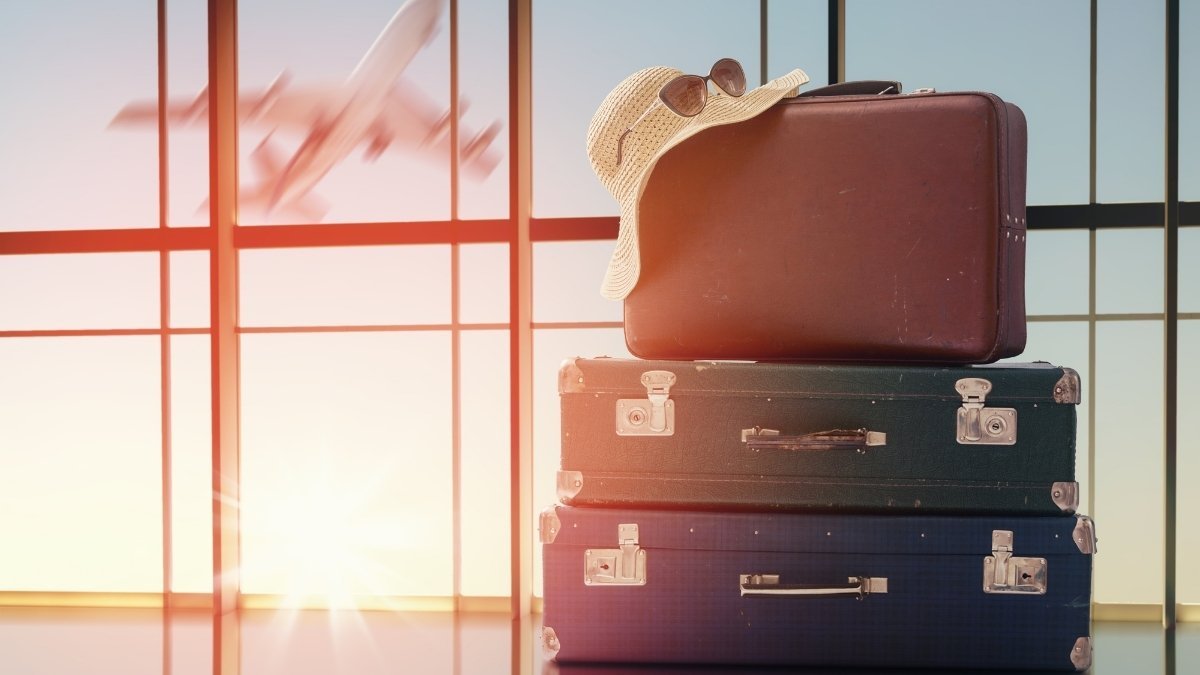
Okay, holidays are a different beast entirely. The algorithms know everyone’s trying to fly, so prices spike 20-30% above normal.
For Thanksgiving 2025, you need to book 35-45 days before departure. That means early October. Google’s data shows the low price range runs from 24 to 59 days out.
For Christmas and New Year’s, book 51-58 days ahead. Basically, by Halloween for December travel.
Spring break (which airlines track regionally since school calendars vary): 43-44 days before works best.
Weirdly, summer travel shows more last-minute flexibility—just 21 days optimal with a range of 13-43 days. Airlines overbook summer capacity, so they’re more willing to discount closer to departure.
One Sneaky Trick for Thanksgiving

Want to hear something wild? A Reddit traveler discovered that international departure flights on Thanksgiving Day itself cost $650 less than flights the day before or after.
They tested it for multiple years. Thanksgiving Day departures to Ireland: $550. Every other day in that week: $1,200.
Why? Americans want to arrive before Thanksgiving to celebrate with family. Nobody wants to spend the actual holiday in an airport or flying across the Atlantic. So there’s this weird demand void specifically on November 28th.
If you’re heading overseas for a longer trip and don’t care about Thanksgiving dinner, this one trick could save you serious cash.
What Actually Matters More Than Booking Day: When You Fly
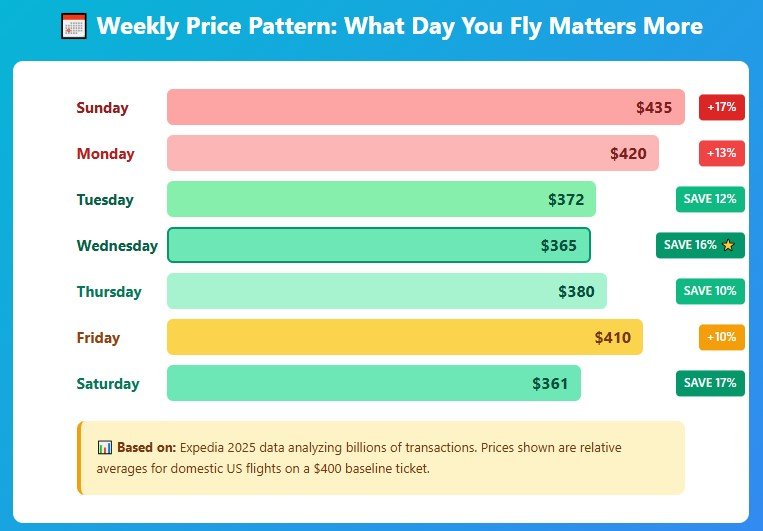
Remember how I said the day you book barely matters? Well, the day you fly matters a whole lot.
This is the secret hiding in plain sight.
The Cheapest Days to Actually Travel
Expedia’s data across billions of bookings found that Saturday departures are 17% cheaper than Sunday flights for domestic routes.
Tuesday and Wednesday flights run about 12% below peak prices.
For international travel? Wednesday and Thursday departures deliver 15% savings versus Sundays.
Let’s put real numbers on this. If you’re flexible on which day you fly:
- Domestic ticket average: $400
- Peak day (Sunday/Monday): $400
- Midweek day (Tuesday/Wednesday): $352 (saves you $48)
- Holiday season: those midweek savings jump to $100+
That’s more than you’d save by obsessing over which day to book.

I know, I know. Not everyone has the flexibility to fly on a Tuesday. Jobs exist. Kids have school. But even shifting by one day—like flying out Saturday morning instead of Sunday afternoon—can save you $50-150 per ticket.
For a family of four, that’s $200-600 right there.
The Early Bird Really Does Get the Worm
Here’s something I’ve learned from years of flying: The first flight of the day is your best friend.
Not just because airports are less crowded (though they are). The operational reasons are even better:
That 6 am flight benefits from:
- The aircraft sat overnight at the gate (no incoming delay)
- Minimal weather disruption early morning
- No cascading delays from earlier flights
- Senior, more experienced crews (junior pilots get afternoon shifts)
Allie Malls, a flight attendant, told CNN: “That’s my trick. I don’t know if I should actually be telling everyone. Otherwise, they’re going to take all my morning flights.”
The first departure also tends to cost less on average. Airlines know most people hate early wake-ups, so they price accordingly.
Yeah, that 5 am alarm hurts. But your wallet (and your on-time arrival) will thank you.
The Secrets Pilots Actually Use to Save Hundreds
⏰ Flight Timing Performance Analysis
✓ Minimal weather disruption
✓ Senior crew typically assigned
✓ No cascading delays
⚠️ Weather developing
✗ Afternoon thunderstorms
✗ Cascading effects accumulating
✗ Crew timing out
✗ Gate availability issues
Alright, let me share what we actually do when booking our own personal travel. These aren’t theoretical—this is what works when you understand how the system really operates.
The Chocolate Trick That Actually Works
Michelle Stoner, a VIP flight attendant with years at Emirates, swears by this: Buy a bag of duty-free chocolates and give it to the cabin crew when boarding.
“They will remember you and give you special treatment. It works like a charm!”
Why does this work? Flight attendants aren’t actually paid until the aircraft doors close. They’re working for free during boarding, dealing with stressed passengers cramming bags into overhead bins.
A simple gesture of appreciation goes a long way. You might get:
- Those “hidden” blankets and pillows (most airlines don’t stock them for everyone anymore)
- Extra snacks or drinks
- Help if you need to move seats
- Priority if there’s an operational issue
Cost: Maybe $10-15 for chocolates. Return on investment: Priceless when you’re on a 12-hour flight.
The Fuel Secret Nobody Talks About
A captain at a major airline once told me something that shocked me:
“I’m constantly under pressure to carry less fuel than I’m comfortable with. Airlines look at the bottom line, and you burn fuel carrying fuel. If you carry just enough and hit thunderstorms or delays, suddenly you’re running out of gas and have to divert.”
This is why you see random diversions to alternate airports. And why you should never book tight connections.
Major hubs need a minimum of 2-hour layovers:
- O’Hare
- Atlanta
- DFW
- JFK
- Denver
Airlines won’t tell you this. They’ll happily sell you a 55-minute connection. But when your first flight is delayed 30 minutes (which happens constantly), you’re sprinting through terminals or missing your flight entirely.
The Seniority System and Holiday Travel
Here’s something most passengers don’t know: Airlines operate on strict seniority systems.
Senior pilots and crew get holidays off. Junior employees work holidays.
An airline pilot revealed: “When you book a flight on Thanksgiving, Christmas, or New Year’s, you are flown by the least experienced crews.”
I’m not saying junior pilots aren’t qualified (they absolutely are). But experience matters, especially in challenging weather.
The smart move? Fly one day before or after the actual holidays. You get:
- More experienced crews
- Lower prices (sometimes 30-40% less)
- Less crowded airports
Win-win-win.
The Upgrade Strategy That’s Surprisingly Simple
Want to know how to increase your upgrade chances without status or points?
Dress nicely.
Michelle Stoner notes: “It’s a good idea to dress nicely at the airport if you would like an upgrade. They’re more likely to upgrade a well-dressed passenger instead of one boarding in their pajamas.”
Gate agents have discretionary power over upgrades, standby lists, and special accommodations. They’re looking at full flights thinking, “who can we move to first class?”
Business casual beats sweatpants every time.
Also: Be kind. A Reddit-verified airline employee confirmed: “If we see you’re a frequent flyer, we’ll wait longer for you. If you’re being rude, there’s a chance we’ll tell you we already started offloading even though it isn’t true.”
The Water You Should Never Drink

Real talk: Don’t drink the coffee or tea on airplanes.
Multiple flight attendants have confirmed this across airlines. A former FA told Vice: “It’s the same potable water that goes through the bathroom system. We recently had a test for E. coli in our water and it didn’t pass.”
The water tanks rarely get properly cleaned. While they’re treated with chemicals, the coffee and tea just mask the taste.
Flight attendants themselves bring bottled water on trips and avoid plane water entirely.
The cabin air is also 15% lower in humidity than ground level, so you need way more water than normal. Pack an empty bottle through security and fill it at a fountain, or buy one post-security.
The Booking Strategies That Actually Save You Serious Money

Okay, now for the good stuff. These are the tactics that can genuinely save you $200-500+ per trip.
Strategy #1: The Mistake Fare Jackpot
Every once in a while, airlines screw up. Royally.
Someone types $250 instead of $2,500. A new route doesn’t have the fuel surcharge applied. Currency exchange calculations go wrong.
These “mistake fares” create deals like:
- Chicago to Rome business class: $249 round-trip (normally $3,000+)
- NYC to Nairobi: $242 round-trip
- San Francisco to Buenos Aires: $233 round-trip
Real examples from Going.com members.
The catch? They last from minutes to hours. You need:
- Premium alert services (Going, Secret Flying)
- The ability to book FAST (we’re talking within minutes)
- Flexibility on your dates and destination
- To book directly with the airline, never through third parties
About 10% get canceled within 72 hours, but airlines can’t retroactively charge you more. They can only cancel and refund.
Is it worth it? If you’re flexible and quick, absolutely. One mistake fare can save you more than a decade of “booking on Tuesday.”
Strategy #2: The Nearby Airport Hack
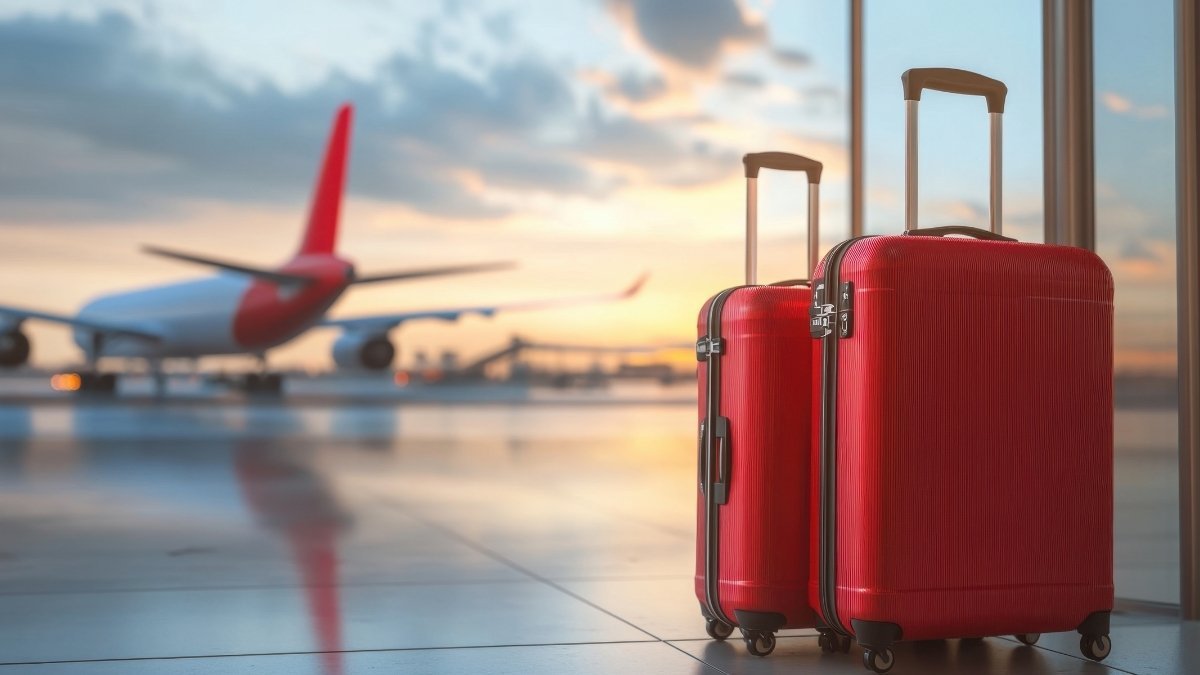
Here’s a simple one that most people ignore: Check airports near your destination.
A traveler searching Krakow to Athens discovered that flying into Katowice Airport (90 minutes away) was dramatically cheaper. Worth it for a €100 savings.
Other winning combinations:
- Long Beach instead of LAX (saves $50-100)
- Oakland instead of San Francisco
- Baltimore instead of DC
- Manchester, NH, instead of Boston
- Clark instead of Manila
The pattern: Secondary airports near major cities often have budget carriers or less demand.
Most search engines have an “Add nearby airports” checkbox. Use it. Always.
Strategy #3: The One-at-a-Time Booking Trick
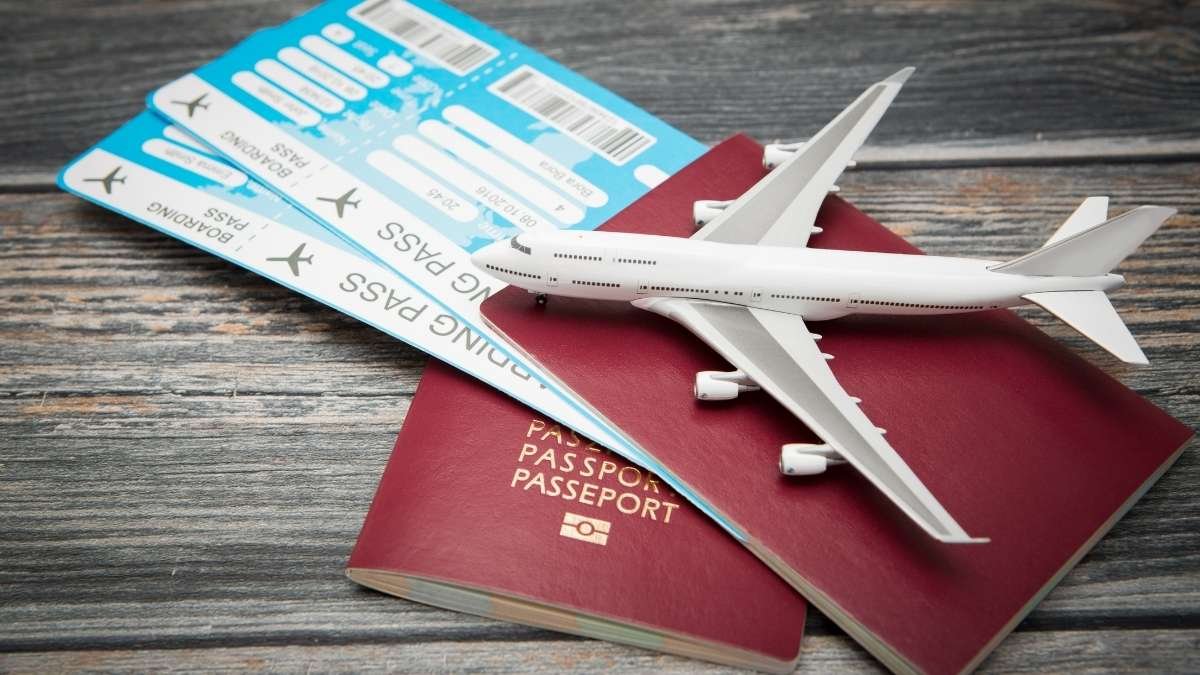
This one feels like a glitch, but it’s totally legit.
Airlines often have limited seats in the lowest fare class. Let’s say only one seat remains at $200, with the rest at $350.
If you search for four tickets together, the system shows all four at $350. Total: $1,400.
If you book them one at a time (picking adjacent seats), you get:
- First ticket: $200
- Next three: $350 each
Total: $1,250. You just saved $150 by clicking “search” four times instead of once.
This works because each booking technically happens separately. As long as you’re quick about it, you can grab adjacent seats.
Strategy #4: The 24-Hour Free Cancellation Rule
This is a federal protection most people don’t know about.
US law requires airlines to let you hold reservations OR allow free cancellations for up to 24 hours after booking, as long as:
- The flight is to or from the US
- You booked directly with the airline (not third-party sites)
- Travel is at least 7 days out
Here’s how to use this:
You spot a great deal at 2pm. Book it immediately to lock in that price. You now have 24 hours to:
- Verify your plans with travel companions
- Check your work schedule
- Research hotels
- Compare alternatives
If prices drop within those 24 hours? Book the cheaper flight and cancel the first one for free.
If you find a better deal on a different airline? Cancel and rebook.
This only works when booking directly. Third-party sites (Expedia, Priceline, etc.) are exempt from this rule.
Strategy #5: The Stopover Program Secret
Want two trips for the price of one?
Many airlines offer free stopovers in their hub cities:
- Icelandair: Free stopover in Reykjavik
- TAP Air Portugal: Free stopover in Lisbon
- Emirates: Free stopover in Dubai
Instead of NYC to London direct, book NYC-Reykjavik-London. You can stay in Iceland for days or even weeks at no additional airfare cost.
Most travelers have no idea these programs exist. Airlines actually promote them to fill hub flights, but they don’t exactly advertise them on the homepage.
The Costly Mistakes Almost Everyone Makes

Let me save you from the faceplants I see constantly.
Mistake #1: Booking Way Too Early
“But I thought early bird gets the worm?”
Not with airline tickets. When schedules first open (like 11 months out), airlines set high “anchor” prices. They discount them later as they get actual booking data.
Stick to the optimal windows: 28-60 days domestic, 60-150 days international.
Mistake #2: Falling for Basic Economy Traps

That $79 fare looks amazing until you realize:
- No carry-on bag allowed (personal item only)
- No seat selection (you get the worst remaining seat)
- Board last, after everyone else
- Can’t change or cancel for any reason
- Can’t use overhead bins on some airlines
Most of the time, paying $30-60 more for regular economy is worth it. You get a real seat, a carry-on, and flexibility if plans change.
Mistake #3: Booking Separate Tickets for Connections
Never, ever book your outbound flight on one airline and your connection on a different carrier unless you have 4+ hours between them.
If the first flight is delayed and you miss your connection, neither airline is obligated to help you. You’re stuck buying a new ticket at walk-up rates.
Always book multi-leg trips on a single reservation.
Mistake #4: Name Entry Errors

Your ticket name must match your passport exactly. Middle names, hyphens, suffixes—everything.
Airlines charge $75-200 to fix name errors. Some won’t let you fix them at all, especially on basic economy fares.
Also, watch out for date format confusion. The US uses MM-DD-Y,Y while international uses DD-MM-YY. Typing 03-05-25 could mean March 5th or May 3rd, depending on where you are.
Triple-check everything before clicking confirm.
Mistake #5: Booking Through Third-Party Sites
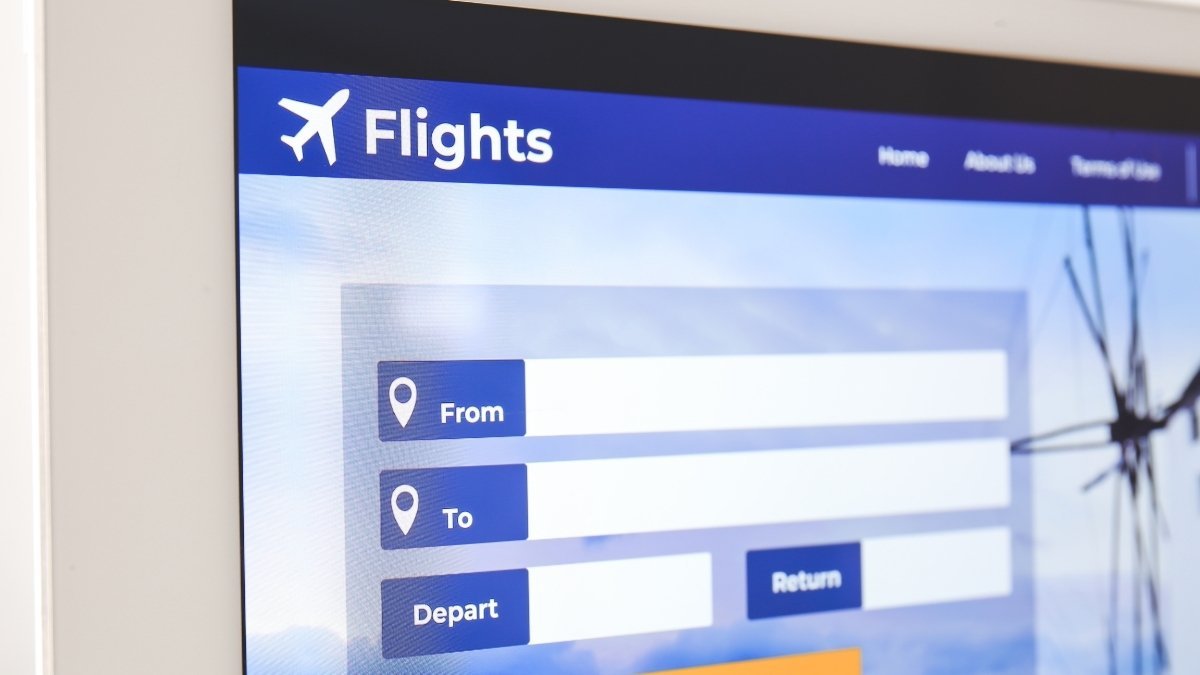
Expedia, Booking.com, Priceline—they’re great for hotels. For flights? Usually, a nightmare when things go wrong.
The 24-hour free cancellation rule only applies to direct bookings. When flights get cancelled or delayed, airlines will rebook you immediately if you booked directly. With third parties, you call them (long hold times), they call the airline, and everything takes forever.
Changes and refunds become incredibly painful.
Book direct unless you’re getting a package deal that legitimately saves money.
Your Personal Flight Booking Gameplan
Alright, let’s put this all together into something you can actually use.
Step 1: Set Up Your Monitoring System
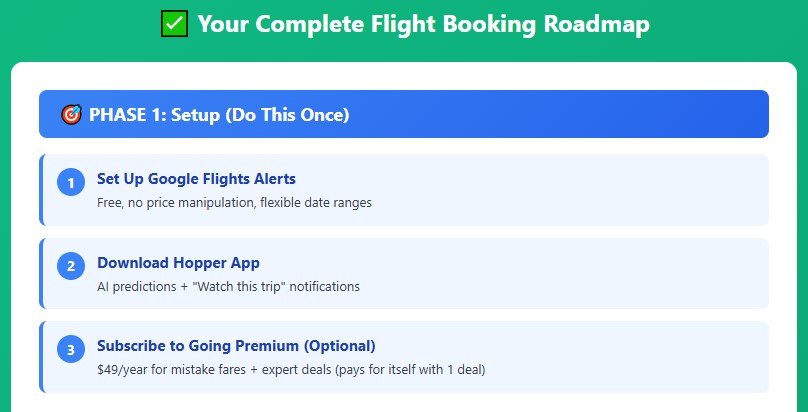
Don’t manually check prices daily. That’s exhausting, and you’ll miss deals.
Instead:
- Set alerts on Google Flights (free, no manipulation, reliable)
- Add Hopper for AI predictions and notifications
- Subscribe to Going Premium or Dollar Flight Club for mistake fares ($50-100/year pays for itself with one deal)
- Enable push notifications so you can act fast
Let the tools watch prices while you live your life.
Step 2: Know Your Optimal Booking Windows
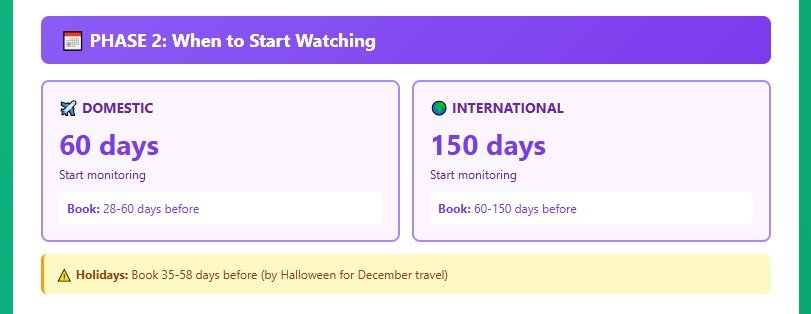
Tattoo these on your brain:
- Domestic flights: 28-60 days before departure (sweet spot: 38-42 days)
- International flights: 60-150 days out (varies by region)
- Holiday travel: 35-58 days before (book by October for December)
Never book domestic more than 4 months out. Never book within 21 days unless you’re desperate or it’s a mistake fare.
Step 3: Prioritize Travel Dates Over Booking Dates
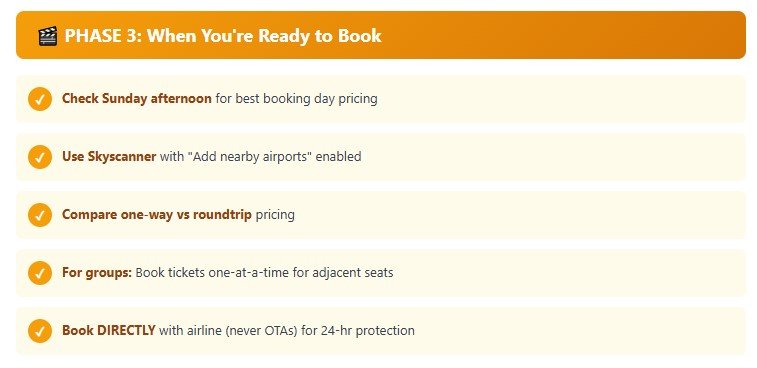
If you have even one day of flexibility, use it. Flying on Tuesday, Wednesday, or Saturday saves 12-17% compared to Sundays.
Early morning flights cost less and are more reliable.
If possible, travel during shoulder seasons (September/October or late January/February) for 30-40% savings.
Step 4: Use the 24-Hour Rule Aggressively
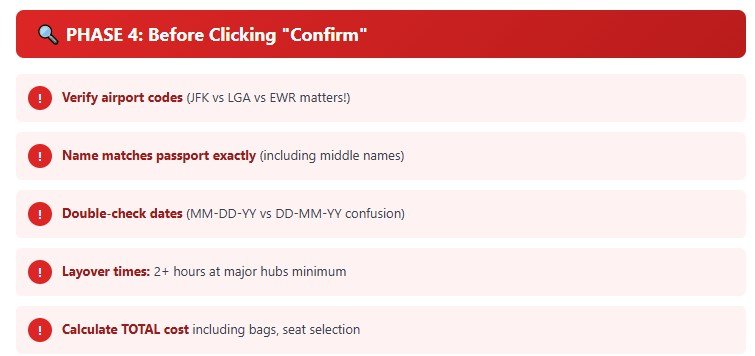
See a good deal? Book it immediately with the airline directly.
You have 24 hours to:
- Cancel for free
- Find a better price and rebook
- Verify your plans
This risk-free window is your best friend. Use it.
Step 5: Check Everything Twice

Before you hit purchase:
- Verify airport codes (JFK vs. LGA vs. EWR matters)
- Confirm your name matches your passport exactly
- Double-check dates (MM-DD-YY vs. DD-MM-YY)
- Calculate layover times (minimum 2 hours at major hubs)
- Review total costs, including baggage fees
Five extra minutes of checking prevents $200 in correction fees.
Step 6: Build in Buffer Time and Backup Plans
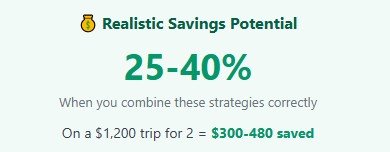
For anything critical (cruises, weddings, conferences), arrive the day before. Book refundable fares if the price difference is reasonable.
Major hubs need 2+ hour connections. Don’t gamble on 55-minute layovers.
Set flight status alerts and be ready to proactively rebook when weather or operational issues pop up.
The Bottom Line on Booking Flights Smarter
Let’s recap what actually matters in 2025:
Stop doing this:
- ❌ Waiting for Tuesday at 3 pm to book
- ❌ Booking 11 months early, thinking you’re getting deals
- ❌ Flying on Sundays/Mondays when possible
- ❌ Using third-party booking sites for flights
- ❌ Booking basic economy without reading restrictions
Start doing this:
- ✅ Book on Sundays (6-17% savings)
- ✅ Target 28-60 days out for domestic, 60-150 days for international
- ✅ Fly Tuesday, Wednesday, or Saturday (12-17% cheaper)
- ✅ Set up price alerts instead of manually checking
- ✅ Use the 24-hour cancellation window aggressively
- ✅ Check nearby airports always
- ✅ Book early morning flights for reliability
- ✅ Book directly with airlines, not OTAs
What are the maximum realistic savings from combining all these strategies? 25-40%, not the “up to 60%” that clickbait headlines promise.
But you know what? On a $1,200 international trip for two people, 35% savings is $420. That’s a nice hotel upgrade. Or three great dinners. Or a whole extra day of activities.
The airline pricing game is complex, but you don’t need to be a data scientist to win. You just need to stop following outdated advice and start using strategies backed by billions of actual transactions.
Ready to Book Your Next Flight?
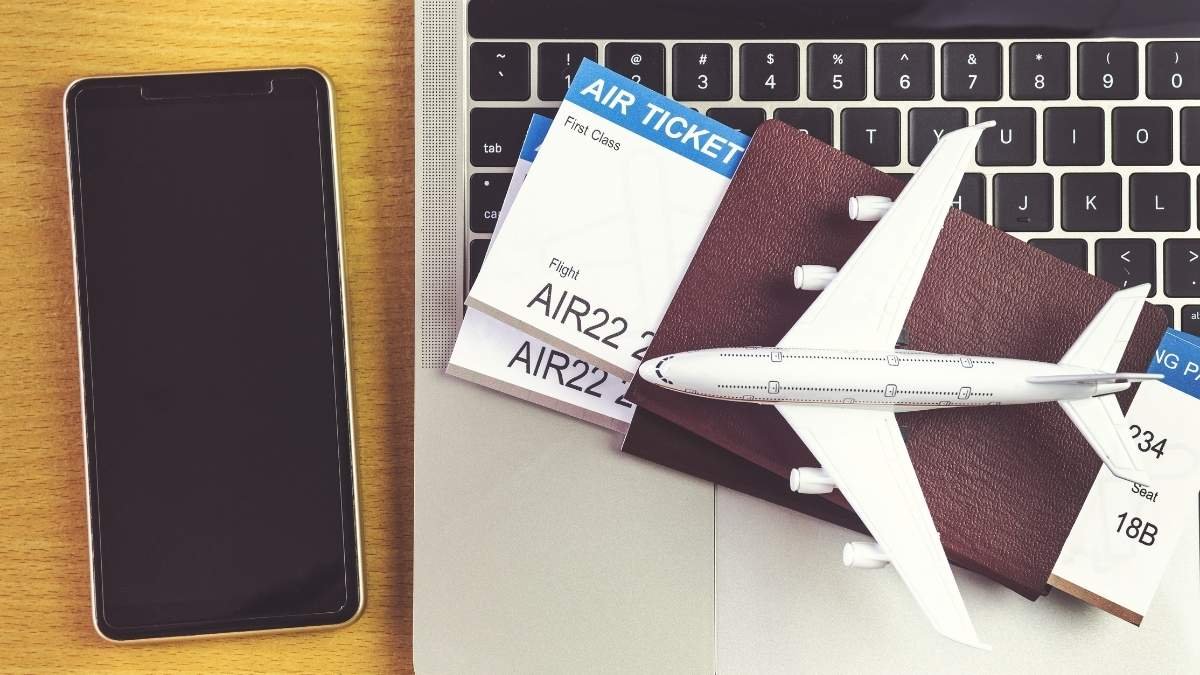
Here’s your action plan for your next trip:
This week:
- Set up Google Flights alerts for routes you care about
- Download the Hopper app
- Consider subscribing to Going Premium if you travel internationally ($49/year)
When you’re ready to book:
- Check prices 28-60 days before your domestic flight
- Search on Sunday afternoon if possible
- Compare nearby airports using Skyscanner
- Book directly with the airline
- Use that 24-hour window to verify everything
Pro tip: Print this article or bookmark it. Review it before your next booking. These strategies work because they’re based on how airlines actually operate, not myths from 2012.
Now get out there and save yourself some money. And maybe grab those duty-free chocolates for the flight crew while you’re at it.
Safe travels! ✈️
Have you used any of these strategies successfully? Or found another booking hack that works? Drop a comment below—I’d love to hear what’s worked for you!






